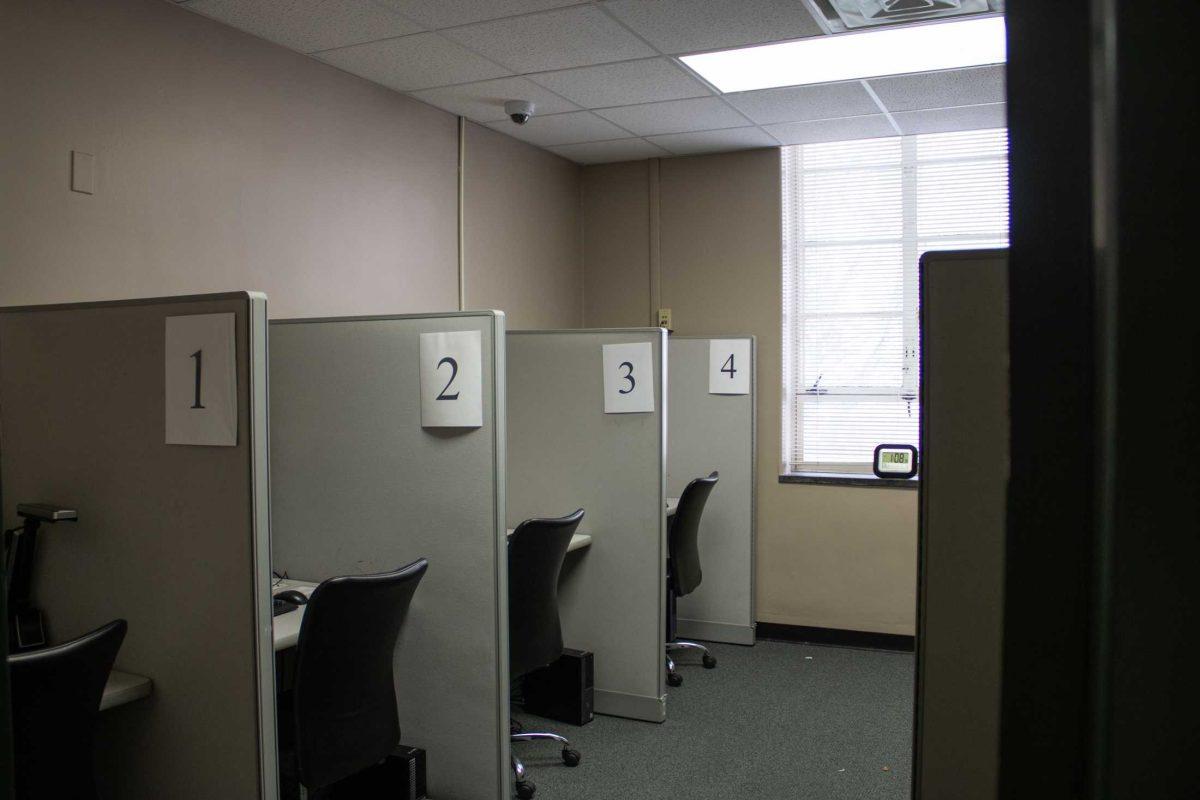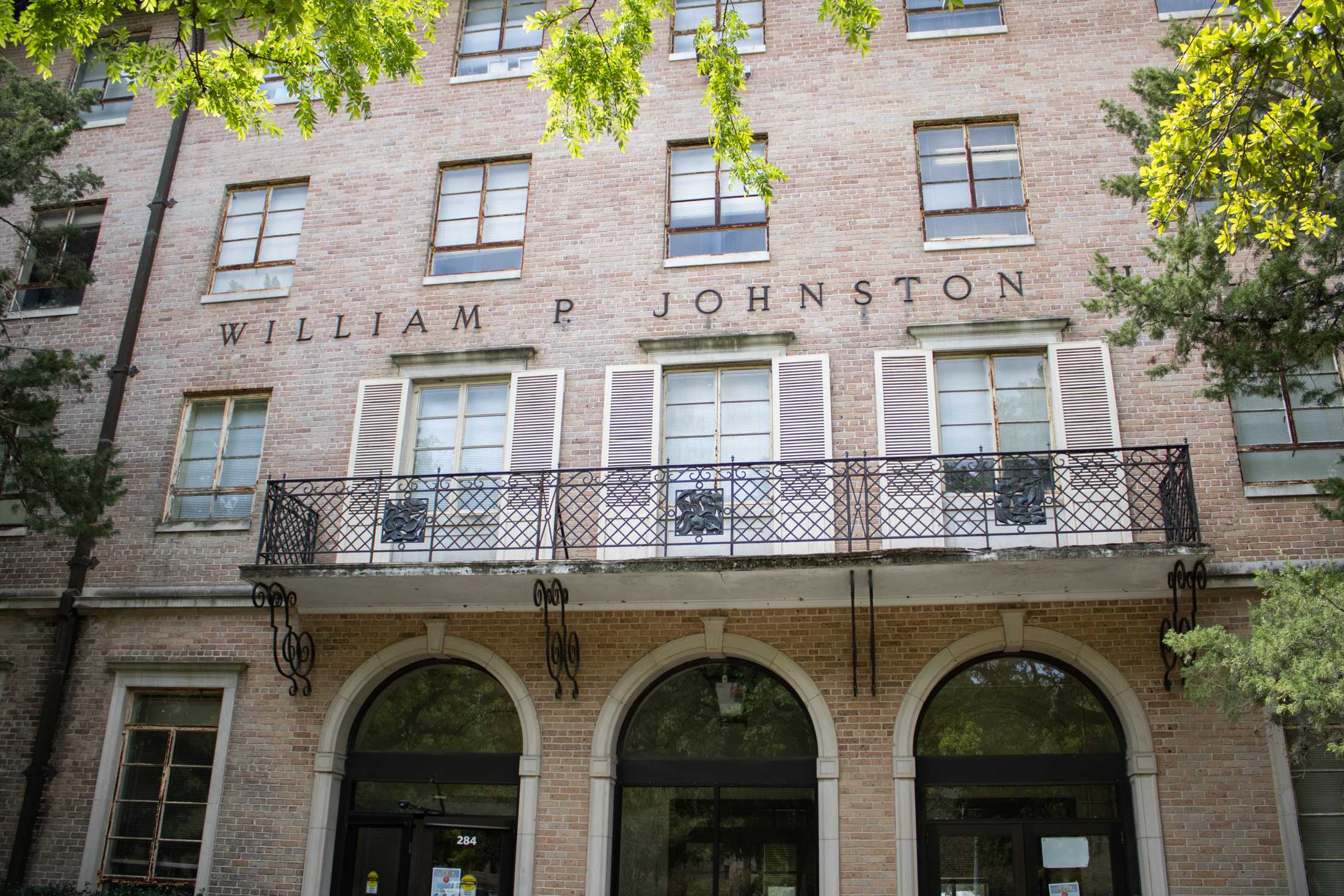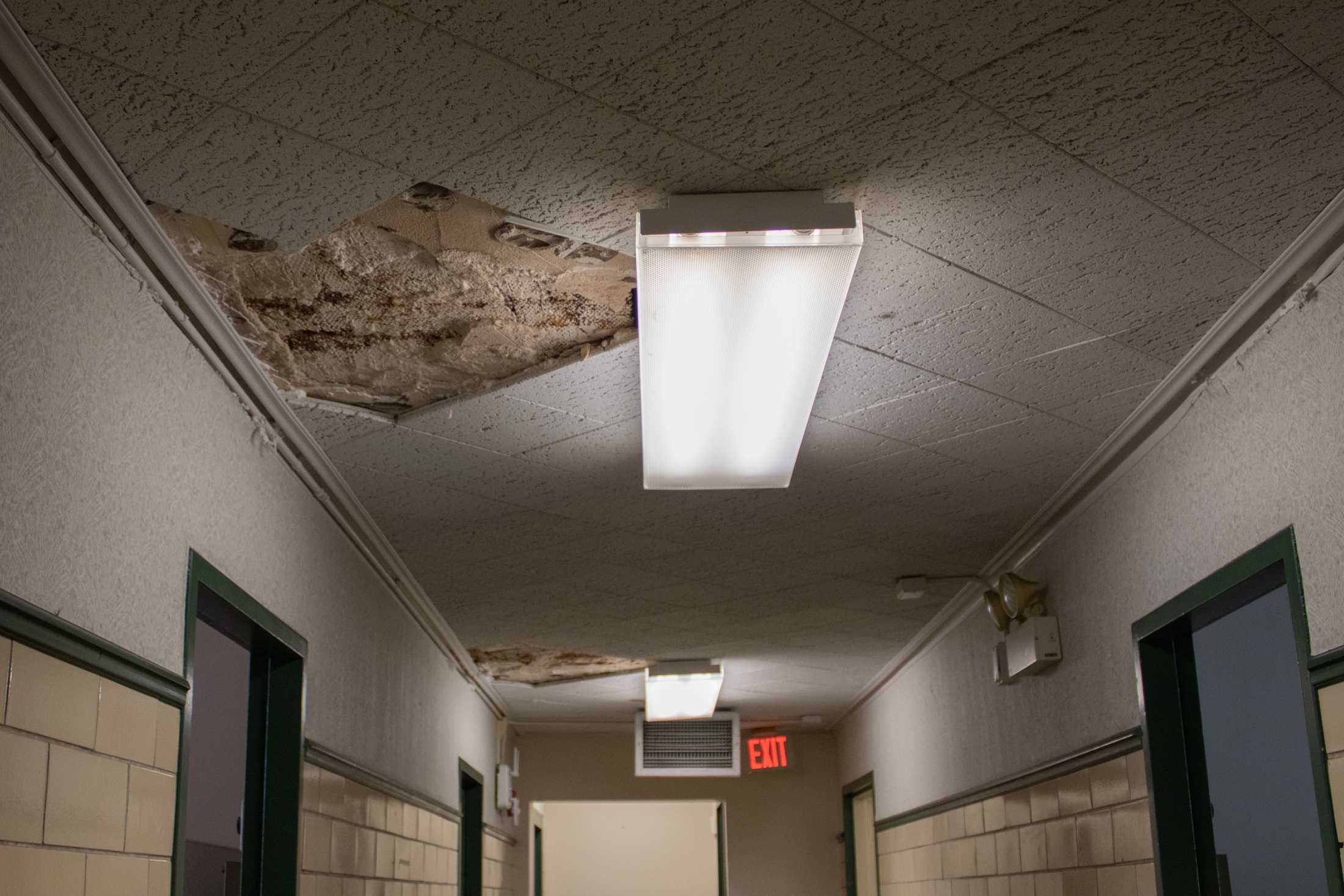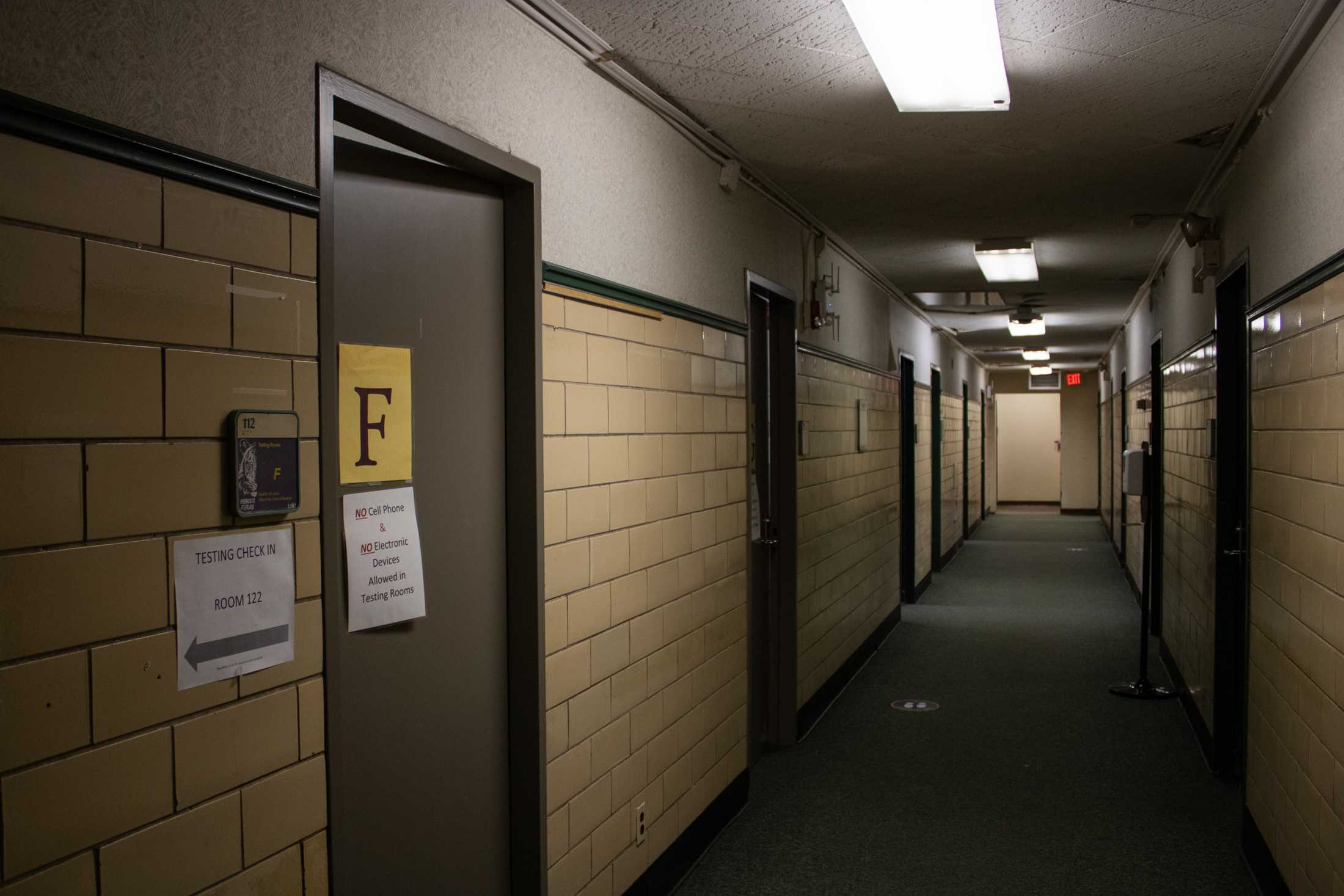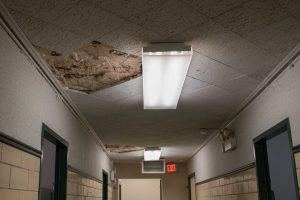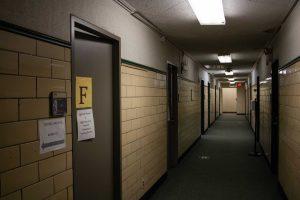Those with the privilege of testing in Himes Hall may not consider it a luxury, but compared to the facility students with disabilities use, it’s an academic utopia. The Himes Hall testing center is a clean and efficient environment that minimizes errors and maximizes student success.
Unfortunately, this isn’t the case for students with disabilities on campus. When testing in Johnston Hall, these students are subjected to eerie testing rooms and a convoluted scheduling process. This facility is one of the most neglected and dismal spaces on campus.
The stark difference between Himes’ and Johnston’s testing environments is just one example of how people with disabilities are not fairly accommodated.
Students who use Himes are expected to schedule their exams via Moodle, show up on test day, then go about their business. Meanwhile, students who use Johnston have a much more complicated process.
Students who use disability services are required to submit an exam request form exactly five days prior to their exam date. Completing this form for each exam is a tedious chore for both students and professors. These students must also request extra time and inform their professors that they plan to use Johnston every time.
In Himes, there’s usually five to seven proctors that walk around and handle all testing concerns. If there’s a problem, it can be fixed quickly. It’s also helpful that Himes is set up as one large room, allowing students to be monitored and offered the help they need.
Johnston hall is quite the opposite. Its testing center is split into 16 rooms labeled A-P, and it has a limited number of proctors. So, whenever there’s a problem, students must leave their testing room and alert the office staff.
These disparities are not a fault of the testing staff in either hall. LSU’s administration and the state legislature are to blame. Nearly every issue in Johnston Hall can be resolved with the proper funding.
Benjamin Cornwell, the director of Disability Services for over 20 years, said the building, which used to be a residential building, hasn’t been properly renovated during his tenure.
“In a perfect world, we’d have individual closed cubicles and larger rooms where almost everything is somewhat of a private room. There’d be enough room for [the] reader or scribe in there as well with sound proofing and all that other stuff. Obviously, we’d be in a renovated or brand new facility,” Cornwell said.
For campus departments to receive renovations, the university must put together a list of those that need the most work. This list makes its way to Louisiana’s Board of Regents, then to state legislators.
As the list passes on, departments in need of renovation are removed or added. Disability Services always seems to fall short of this list. As a result, the students and staff are left to make do with what they have.
LSU’s neglectful treatment of disability services mirrors how disabled people are treated in society. Creating a more accessible and accepting environment for everyone is important. Progress has been made, but there’s plenty of work to be done.
“Louisiana’s moving forward, I think we’ve been behind the curve. Quite honestly, if you go through major cities in other states, I think you’ll see greater access in some places than others. Baton Rouge is really trying to create an environment that’s more accessible for all,” Cornwell said.
Even if the ultimate funding decisions may be out of the LSU’s hands, there should be a bigger push to gain funding for the Johnston Hall testing center. That’s just one of many ways LSU can help to accommodate disabled students.
Investing in the success of disabled students should become more of a priority for the university. Beyond LSU, providing better environments and accommodations for disabled students should be standard.
”We all need to be open and empathetic, so we can hear people and not be part of the problem,” Cornwell said.
Jemiah Clemons is a 19-year-old kinesiology freshman from Miami, Florida.



